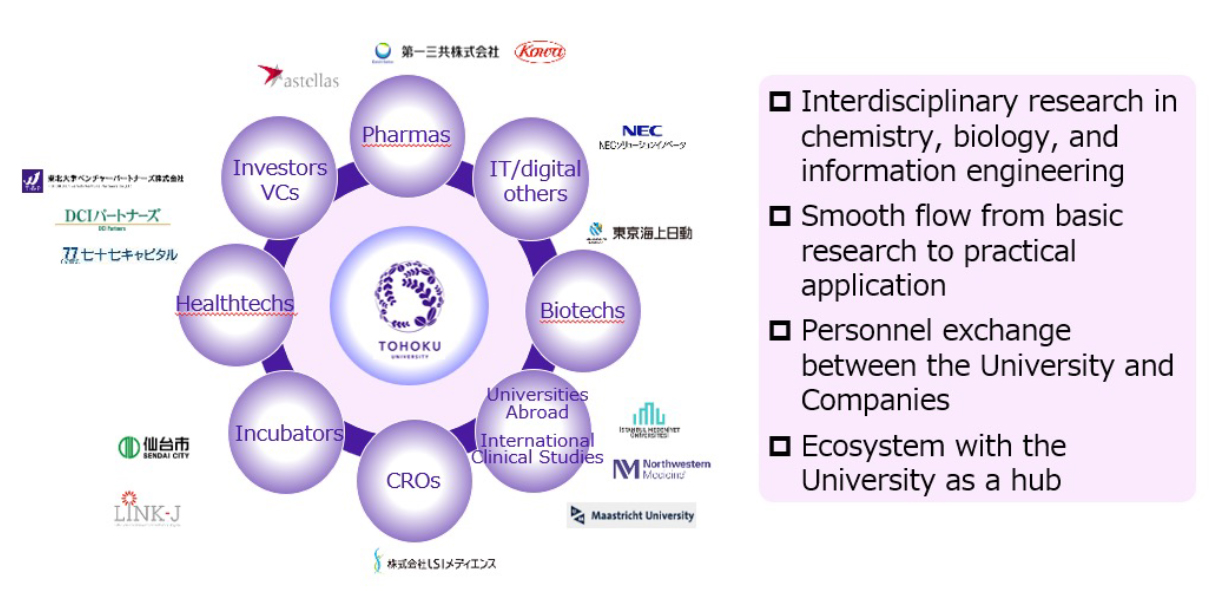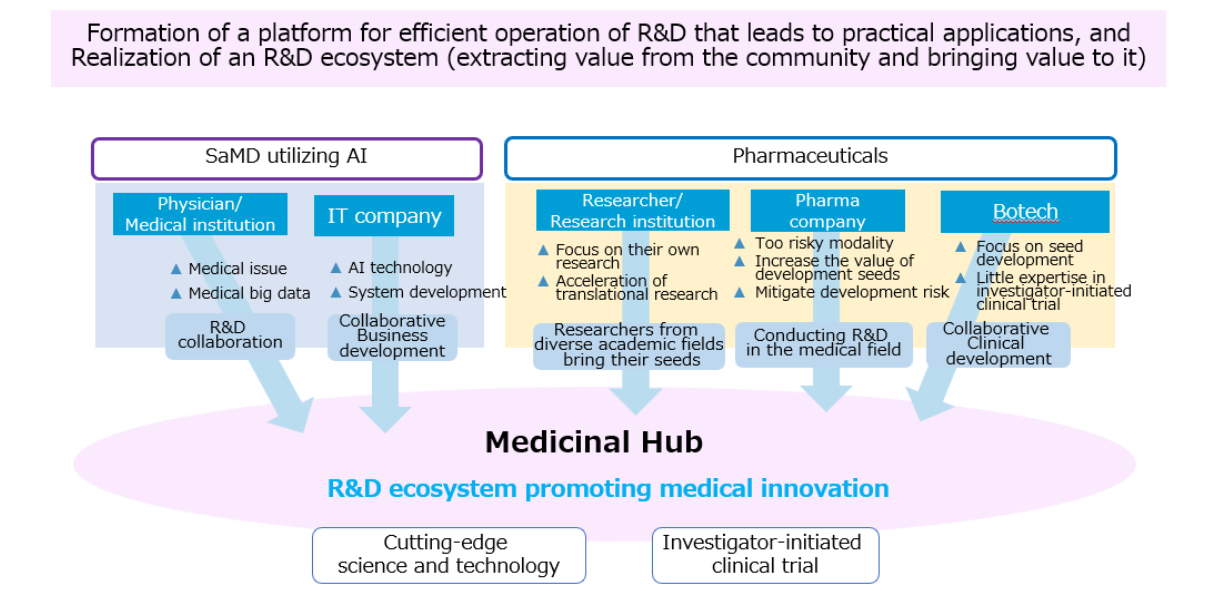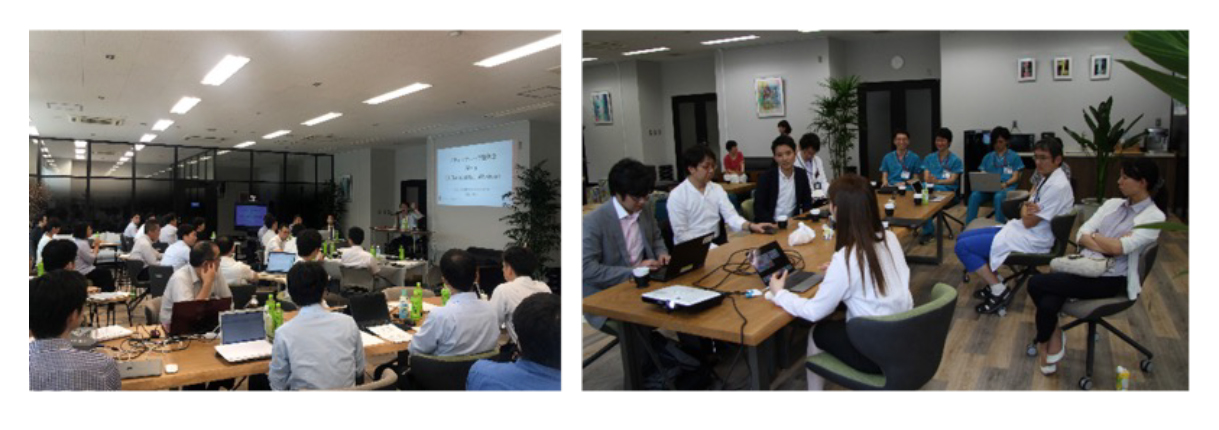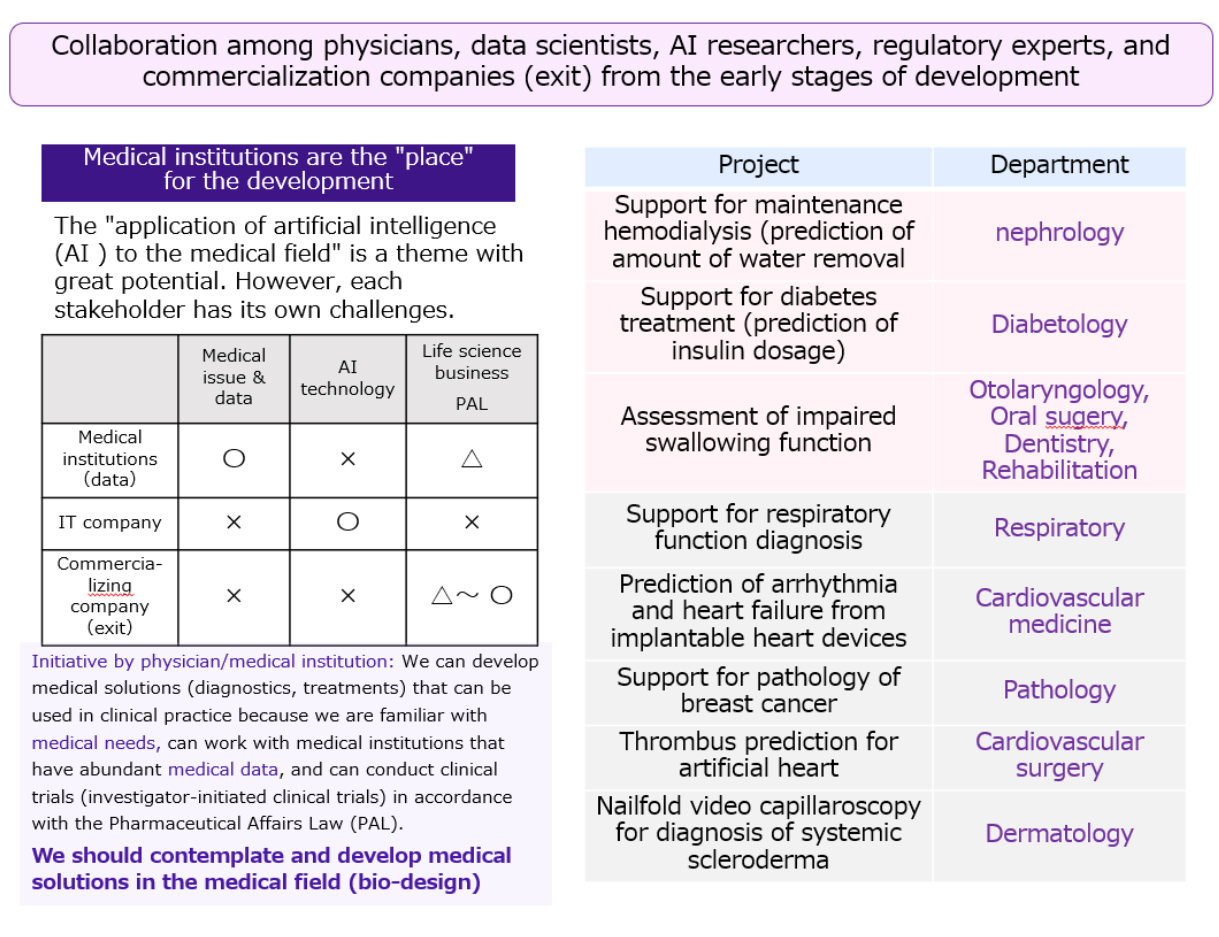Tohoku University has been working on an open innovation consortium centered on several departments, including medical research. The “Medicinal Hub”, an open-innovation industry-academia co-creation center, has been established since 2018 at the second floor of the Seiryo Campus Building 5, to aim building an ecosystem that enables the creation of cutting-edge innovations required by the healthcare business through the participation of many different industries, including not only pharmaceutical companies but also the so-called health tech industry, biotech companies, venture capitalists, contract research organizations (CROs), incubators, and others. The Medicinal Hub was adopted to “MEXT Project to Develop Open Innovation Organization”.
In particular, the Medicinal Hub aims practical applications of academic seeds under the project names TACT(Tohoku university and Astellas Collaboration Committee), TOIDAS(Tohoku university Open Innovation and Daiichi-Sankyo Initiative), and TREx(Tohoku university x Renascience)with Astellas, Daiichi-Sankyo and Renascience, respectively.


In addition to research and development at Tohoku University, the open space of the Medicinal Hub is also utilized as a venue for seminars and social events of the Doctoral Program for World-leading Innovative & Smart Education (MEXT) and for human resource development through industry-academia collaboration. It also functions as the administrative secretariat for the " Science and Technology Platform Program for Advanced Biological Medicine" of Japan Agency for Medical Research and Development(AMED, and collaborates with Tokyo Medical and Dental University and Keio University, which were selected to “MEXT Project to Develop Open Innovation Organization” (Pharmaceutical Field).

Since 2020, in addition to life science companies including pharmaceutical companies, IT companies such as NEC and NEC Solution Innovator (NES) have joined the Medicinal Hub to practice research and development in truly interdisciplinary areas, and various software as a medical device (SaMD) has been developed to support treatment and diagnosis using an AI engine (program) based on medical data (big data) obtained from physicians and researchers.
